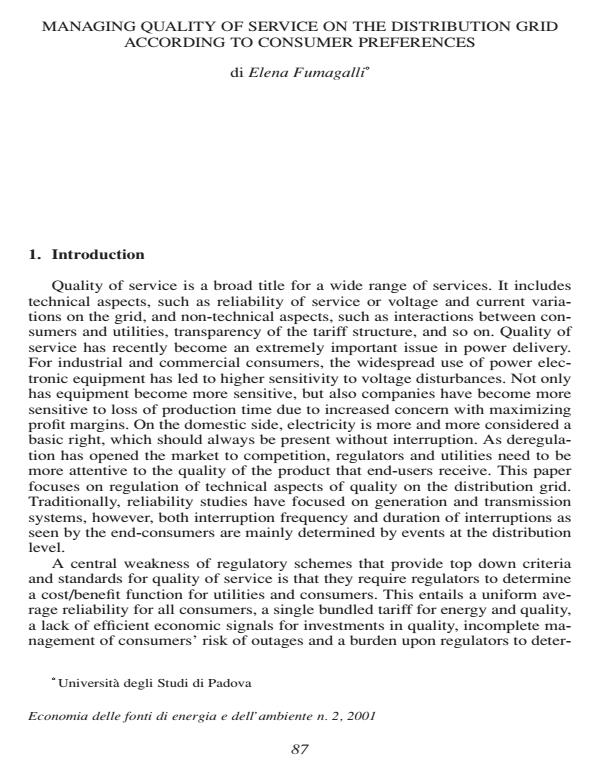Managing quality of service on the distribution grid according to consumer preferences
Journal title ECONOMIA DELLE FONTI DI ENERGIA E DELL’AMBIENTE
Author/s Elena Fumagalli
Publishing Year 2002 Issue 2001/2
Language English Pages 23 P. File size 129 KB
DOI
DOI is like a bar code for intellectual property: to have more infomation
click here
Below, you can see the article first page
If you want to buy this article in PDF format, you can do it, following the instructions to buy download credits

FrancoAngeli is member of Publishers International Linking Association, Inc (PILA), a not-for-profit association which run the CrossRef service enabling links to and from online scholarly content.
<i> Managing Quality of Service on the Distribution Grid according to Consumer Preferences </i> (by Elena Fumagalli) - ABSTRACT: This paper compares the fundamental principles of the Italian regulatory framework for Quality of Service with an insurance-based approach. In the Italian regulatory approach asymmetry of information on the regulator’s side creates the risk of introducing inefficiencies or distorted incentives to utilities. In addition, the issue of risk of interruptions for end-users is not properly addressed. Introducing an insurance-type contract for reliability service enables consumers to provide the distribution utility the necessary information on how much they value uninterrupted service. This creates an efficient dynamic system where market signals flow from the consumers to the utility and vice versa. More importantly, reliability insurance shifts outage risk from the end user, who has no control over the grid, to the distribution utility, which is responsible for operating the grid. This approach leads to the idea that differentiated reliability for individual groups of consumers on the distribution grid is a more efficient solution than a uniform level of reliability for the whole distribution area. This is shown with a simulation on a sample grid.
Elena Fumagalli, Managing quality of service on the distribution grid according to consumer preferences in "ECONOMIA DELLE FONTI DI ENERGIA E DELL’AMBIENTE" 2/2001, pp , DOI: